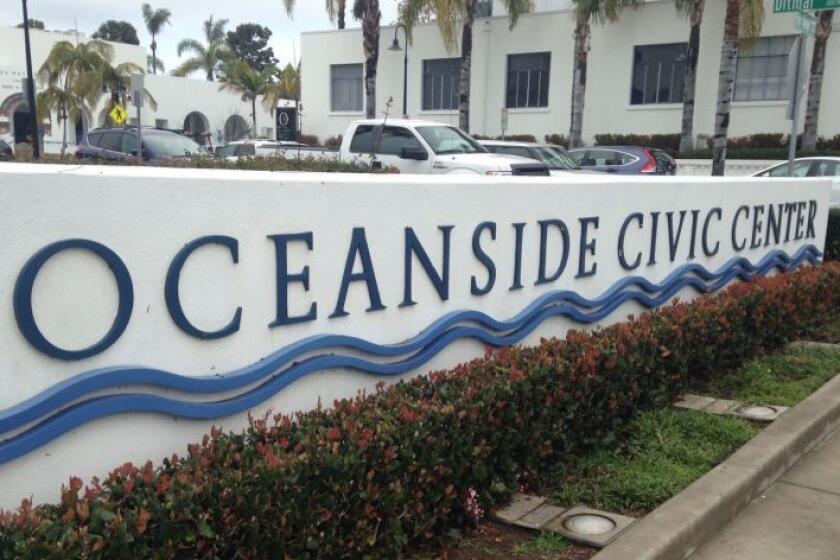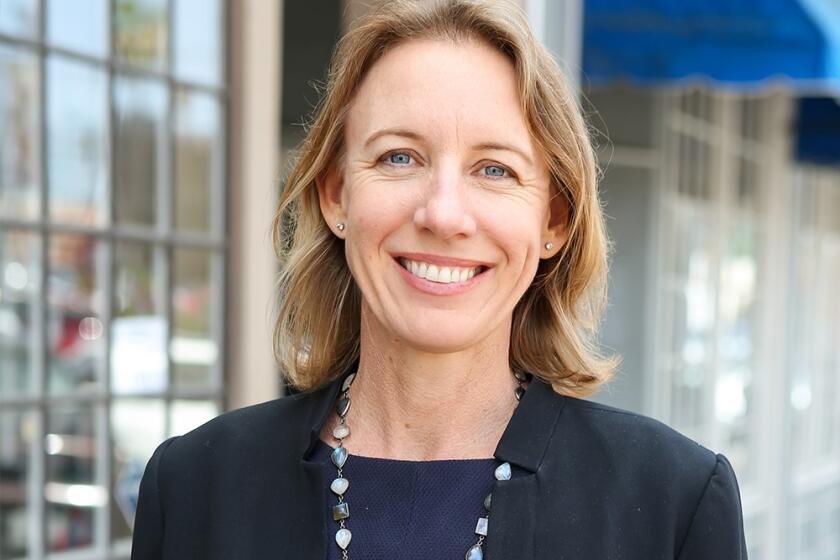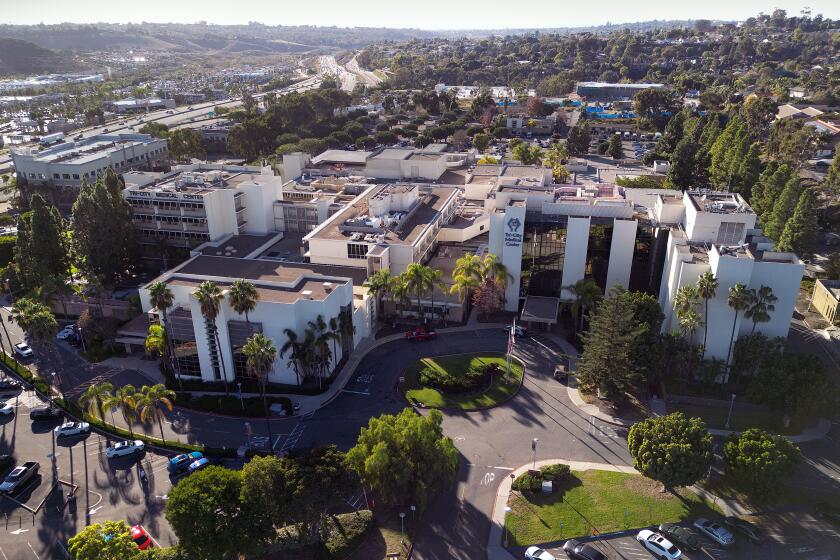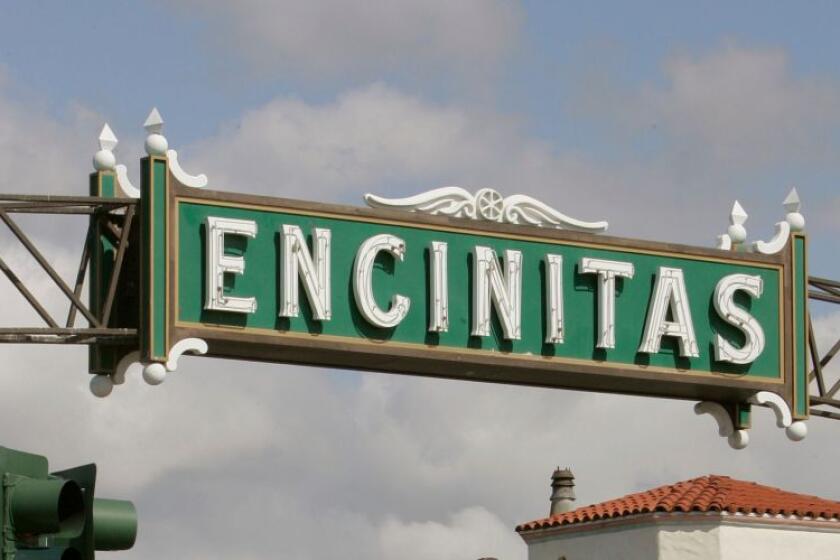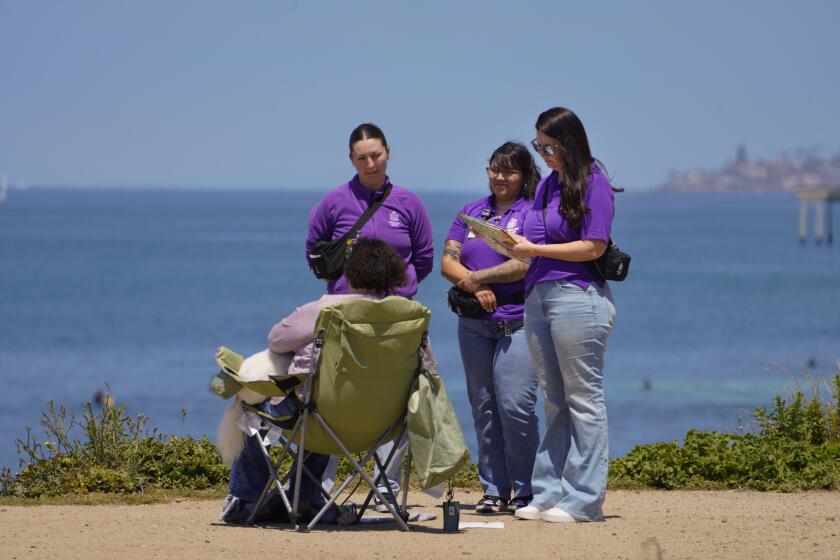Oceanside approves 585-home North River Farms project for Morro Hills
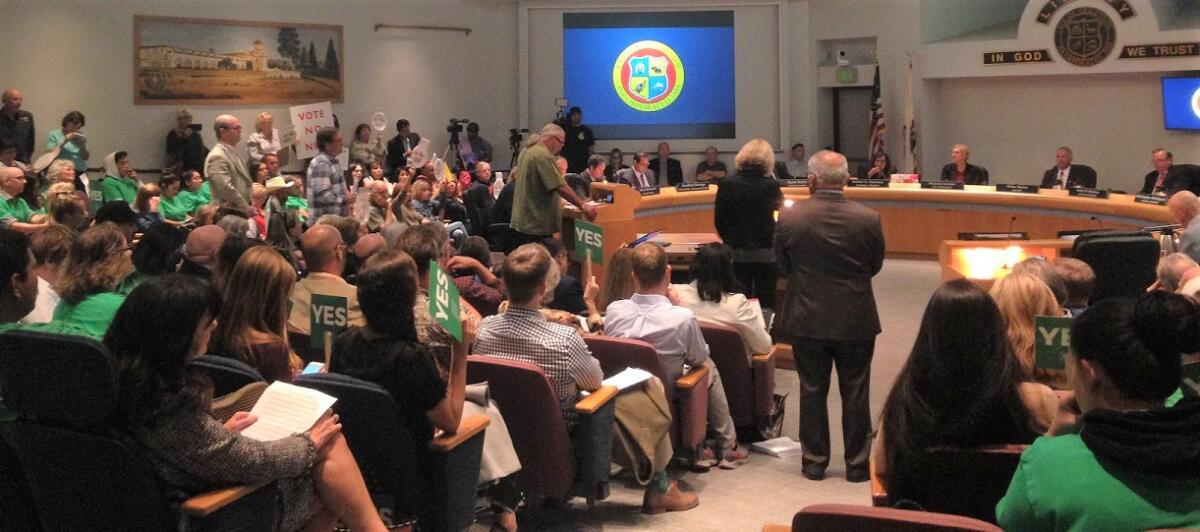
The 215-acre development will be built in the city’s last agricultural stronghold
The Oceanside City Council approved the 585-home, 215-acre North River Farms project in Morro Hills on a 3-2 vote Wednesday, allowing dense residential development in the city’s last agricultural stronghold.
Councilman Chris Rodriguez, who represents the district where the project will be built, said the plan has been much improved by its multiple revisions. He said the homes, jobs and community improvements, including a new fire station that would reduce response times, are badly needed and could mean “the difference between life and death” for people in that area.
Council members Esther Sanchez and Ryan Keim voted against approval. The site is on North River Road, between Stallion Drive and Wilshire Road, east of the city’s Melba Bishop Recreation Center. The area has been farmed for tomatoes, cut flowers and citrus for generations.
“This is urban sprawl at its worst,” Sanchez said. The houses will be too expensive for Oceanside residents to afford, the site is not near most public transit, and it doesn’t meet the state’s affordable housing requirements, she said.
To make the project more attractive, developer Integral Communities agreed to contribute $1 million toward the South Morro Hills Community Plan, $500,000 toward improvements at Melba Bishop Park, and $100,000 for Oceanside climate plan initiatives.
Integral also will dedicate one acre of the site for a permanent city fire station, build a public dog park, a mountain bike trail and other recreational facilities, and improve North River Road, nearby portions of Vandegrift Boulevard and connecting bridges and intersections leading to the development.
The planned community is designed to capitalize on the region’s farming history by incorporating an agricultural theme. It will include neighborhood gardens available to residents, a farmers market, different types of housing in separate “villages,” and a commercial core with a restaurant, brewery or both, and space for offices, retail shops and community activities.
“We are doing more than what is required,” said Integral project manager Ninia Hammond. “The homes are set back from the road, so agriculture is what you see and feel when you arrive.”
The project was presented to the Oceanside Planning Commission three times, and each time the commission recommended the City Council deny it.
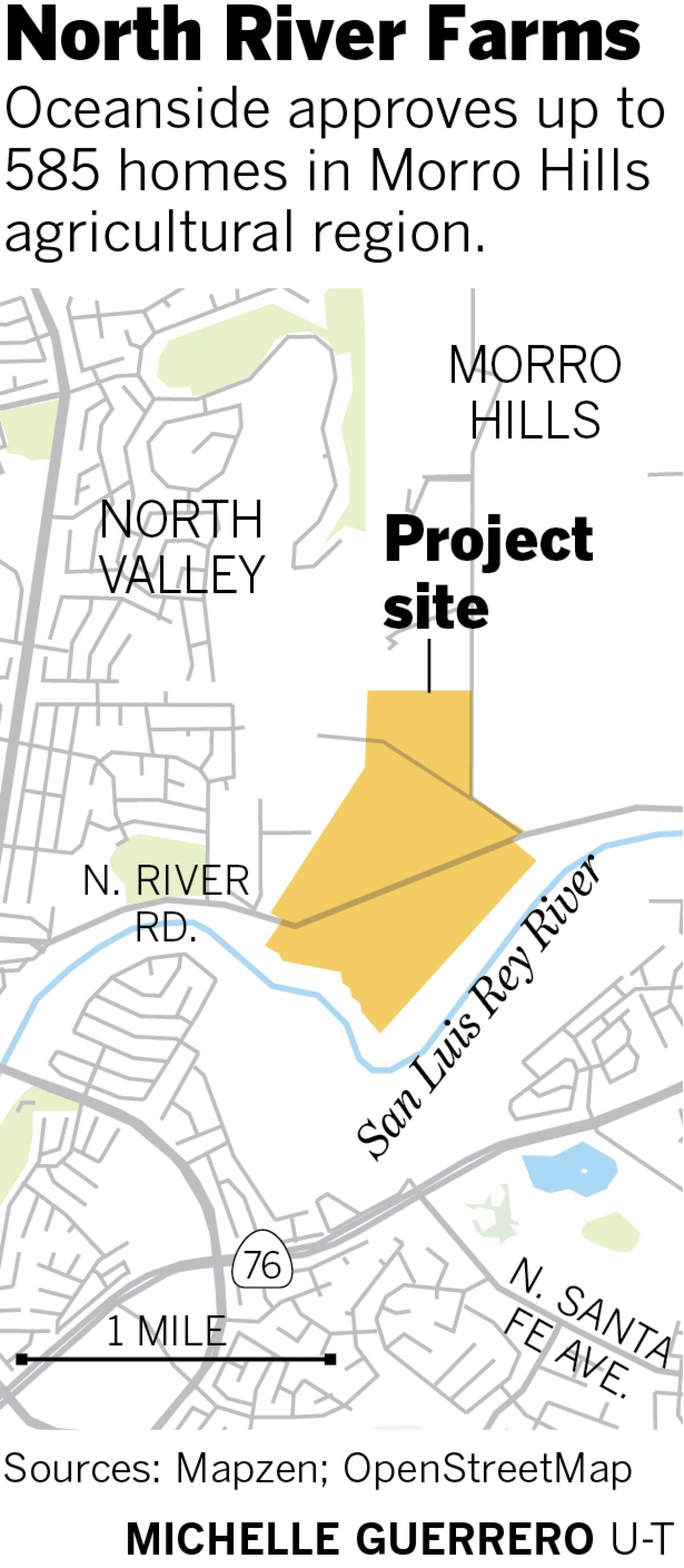
Each time Integral revised the proposal, reducing the number of homes, adding community gardens and open space, and agreeing to pay for more work to improve nearby streets and bridges. Wednesday the plan was presented to the council for approval.
Almost 100 people spoke to the council on the issue for more than five hours before the decision, which came after 11 p.m. The council chambers was filled to capacity, and many people stood or sat in rows of chairs set up in the foyer outside the room.
Several times the discussion grew heated and outbursts led the mayor to stop the meeting for 10-minute breaks.
The developer teamed up with the Vista-based nonprofit Solutions for Change, which helps the homeless and needy find jobs and housing, to bus 50 people, mostly clients and staff, to attend the meeting. They arrived at 4 p.m. to fill seats in the council chamber, and the developer fed them pizza, gave them green T-shirts to wear and “Yes on NRF” signs to hold, though many of them seemed to know little about the project.
“This company Integral has been supporting us for 10 years,” said Chris Megison, president and CEO of Solutions for Change. “Without them and people like them, we are done.”
Only about one-third of the speakers supported the project, and many of those who did live outside Oceanside or were developers or real estate agents.
Oceanside activist Diane Nygaard called the project “egregious,” and one of the “worst projects seen in the region in the last 20 years.”
The only access to the community will be from North River Road, which is congested now during the daily commute hours. Traffic studies show it would be worse after the development, despite the planned improvements.
Fire safety was one of the most frequently heard concerns. The site is along the San Luis Rey River in an area that was evacuated in the path of the fast-moving Lilac Fire two years ago.
“It is beyond my comprehension that we are even considering this” without a more adequate emergency evacuation plan, said Colleen Balch, a former city planning commissioner.
The project was supported by some of the area’s largest and oldest farming families, who find their business more difficult each year as the costs of water, labor and real estate go up.
“We do know that some of these farmers are not interested in farming any more,” said Councilman Jack Feller. “What do they do?”
The nearby Arrowood residential development, with 1,100 homes, was widely opposed before it was built 20 years ago, Feller said. Today, it’s fully occupied and “I don’t hear any complaints.”
After approving North River Farms, the council agreed unanimously to prepare an ordinance that would prohibit any further residential development in what’s left of the 3,500-acre Morro Hills region until the city’s outdated General Plan is revised.
The ordinance will be presented for a public hearing and approval at a future council meeting.
Updates
11:53 a.m. Nov. 7, 2019: This story was updated at 11:50 a.m. and 2:43 p.m. Thursday and 11:23 a.m. Friday to edit and add information.
Get North County news in your inbox
Top stories from the San Diego North County every Monday, Wednesday, and Friday.
You may occasionally receive promotional content from the San Diego Union-Tribune.



